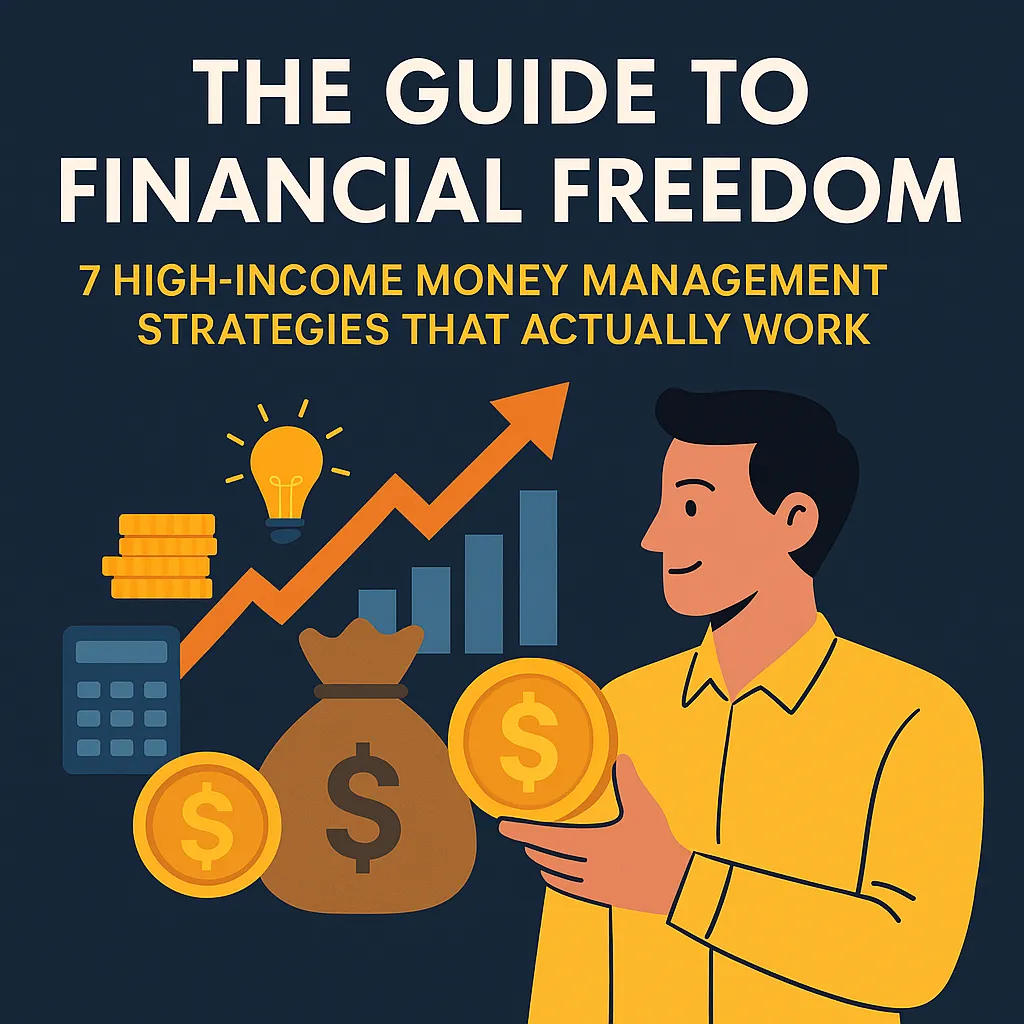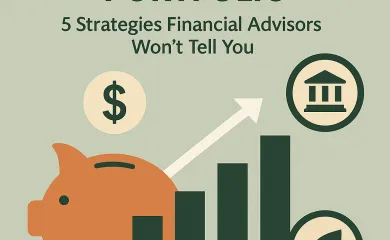The Guide to Financial Freedom: 7 High-Income Money Management Strategies That Actually Work

Ever feel like your bank account doesn't reflect your hard work? You're not alone. Let's talk about financial freedom and how you, yes you, can achieve it with these seven strategies. Grab a coffee, let's chat.
1. Live Below Your Means: Why Less is More
It's tempting to splurge when you're earning a high salary. But living below your means is the golden rule. Think about it—do you really need that third car or the designer watch? Instead, focus on what truly matters. Save more, spend less.
- Track your expenses. Apps like Mint or YNAB can help.
- Set a budget and stick to it.
- Embrace a simpler lifestyle. Less stuff, more happiness.
Try it now! You might be surprised how freeing it feels.
2. Invest Wisely: Let Your Money Work for You
Heard of compound interest? It's like planting a money tree. Start investing early, and your money grows, even while you sleep. Stocks, bonds, real estate—pick your poison. Just make sure to diversify.
- Research before investing. Knowledge is power.
- Consider hiring a financial advisor.
- Stay patient. Wealth building takes time.
Seriously, who wouldn't want money growing on trees?
3. Emergency Fund: Your Financial Safety Net
Life throws curveballs. An emergency fund is your cushion. Aim to save three to six months' worth of living expenses. It's your best friend in tough times.
- Start small. Save what you can each month.
- Keep it liquid. Easy access is key.
- Don't dip into it for non-emergencies. Discipline is crucial.
When the unexpected hits, you'll be glad you prepared.
4. Pay Off Debt: Free Yourself from Financial Chains
Debt is like a ball and chain. Paying it off should be a priority. Start with high-interest debts. The sooner you pay them off, the less you'll pay in interest.
- List all your debts. Face them head-on.
- Tackle high-interest debts first.
- Consider debt consolidation if it lowers your interest rates.
Imagine the freedom of being debt-free. Now go chase it.
5. Retirement Planning: Because Time Flies
Retirement may seem far off, but it'll sneak up on you. Start planning now. Max out your retirement accounts, and your future self will thank you.
- Contribute to a 401(k) or IRA.
- Take advantage of employer matches. It's free money!
- Review and adjust your retirement goals yearly.
Think of it as a gift to your future self. Trust me, you'll appreciate it.
6. Tax Planning: Keep More of What You Earn
Taxes can be a headache. But with smart planning, you can keep more of your hard-earned cash. Consider deductions, credits, and tax-advantaged accounts.
- Hire a tax professional. It's worth it.
- Stay updated on tax laws. They change often.
- Plan ahead to minimize surprises come tax season.
Remember, it's not about avoiding taxes, but being smart about them.
7. Continuous Education: Stay Sharp, Stay Ahead
The financial world doesn't stand still. Neither should you. Keep learning, and you'll make informed decisions. Plus, it's kind of fun to be the smartest person in the room.
- Read financial books and articles.
- Attend workshops and seminars.
- Join financial forums and discussions.
Knowledge is your best investment. The more you know, the better you grow.
FAQs
1. How much should I save for an emergency fund?
Aim for three to six months' worth of living expenses. It's your safety net for unexpected situations.
2. When should I start investing for retirement?
Start as soon as possible. The earlier you begin, the more time your investments have to grow.
3. How can I manage my taxes better?
Consider hiring a tax professional and staying informed about tax laws. Planning ahead can save you money.
So, there you have it. Seven strategies to achieve financial freedom. What's your next step? Start with one strategy today and see how it feels. Share your experiences, engage with others, and let's keep the conversation going. Your financial future is just a strategy away.



